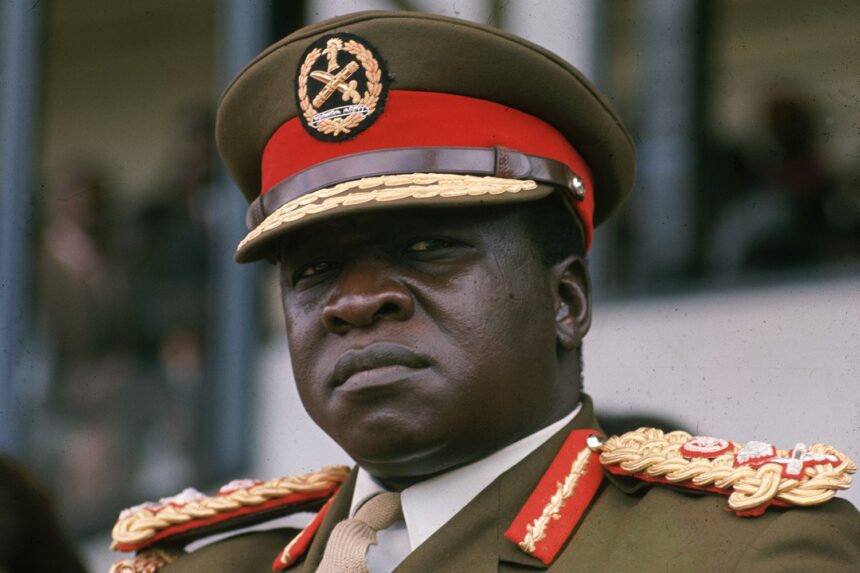Idi Amin was the military dictator and President of Uganda from 1971 to 1979. His regime was marked by widespread human rights abuses, political repression, and economic turmoil.
Contents
Here are some key points about his life and rule:
Early Life and Military Career
- Born: January 1, 1925, in Koboko, Uganda (then part of British colonial rule).
- Background: He was of the Kakwa ethnic group and joined the British colonial army in 1946. Amin quickly rose through the ranks and became known for his physical prowess, as well as his aggressive nature.
- Career in the Army: Amin became a key figure in the Ugandan military after independence in 1962. He was appointed Chief of Staff of the Ugandan Army in 1966, during the presidency of Milton Obote.
Rise to Power
- In 1971, Amin staged a coup against President Milton Obote, who was abroad at the time. He seized power with the support of the army and quickly declared himself president.
- Initially, his regime enjoyed some international support, especially from countries like the United Kingdom and the United States, but this would change over time.
Dictatorship and Policies
- Amin’s rule was characterized by brutality and repression. His government was responsible for the deaths of an estimated 300,000 to 500,000 people, with many of the victims being political opponents, ethnic minorities, and perceived enemies of the state.
- He implemented a number of policies that caused significant hardship, including the expulsion of Ugandan Asians (mainly of Indian descent) in 1972. This was part of a broader policy of nationalism and anti-colonialism, but it led to economic collapse as many skilled workers and businesspeople were forced to leave.
- He also pursued a militaristic foreign policy, including a brief and disastrous military conflict with Tanzania in 1978, which eventually contributed to his downfall.
Human Rights Abuses
- Amin’s regime was marked by extreme violence. Political opponents were imprisoned, tortured, and executed. His secret police, the State Research Bureau (SRB), was notorious for conducting operations that involved gruesome torture methods.
- Many Ugandans were forced into exile, and ethnic groups like the Acholi and Lango were specifically targeted.
Downfall and Exile
- Amin’s regime began to unravel after his invasion of Tanzania in 1978. The Ugandan-Tanzanian War ended in defeat for Amin’s forces. His own soldiers turned against him, and by 1979, he was overthrown.
- Amin fled to Saudi Arabia, where he lived in exile for the remainder of his life.
Later Life and Death
- In exile, Amin lived a life of obscurity and poverty in Saudi Arabia, though he was reportedly allowed to live comfortably.
- Death: He died on August 16, 2003, in Jeddah, Saudi Arabia, from complications related to kidney failure. He was never tried for his crimes against humanity.
Legacy
- Amin’s legacy remains highly controversial. His rule is remembered as one of the most brutal in African history, but some people in Uganda recall him for his attempts at making Uganda self-sufficient and his opposition to foreign influence. His regime is often seen as a period of national humiliation, especially due to his erratic and violent actions.
- He is also known for his eccentric behavior, including giving himself titles like “Conqueror of the British Empire” and “Last King of Scotland.”
Amin’s rule left deep scars in Uganda, and the impacts of his dictatorship are still felt in the country today.
To advertise with us contact: info@wisemoneythoughts.com +254724612935 PRINT MAGAZINE(S) (Required number[s]?) -1,200,000 KENYA SHILLINGS PER MONTH FULL PAGE, ONLINE-1,050,000 KENYA SHILLINGS PER ADVERT PER MONTH, VAT EXCLUSIVE, COMMISSION IS 20%....ALL NEGOTIABLE


